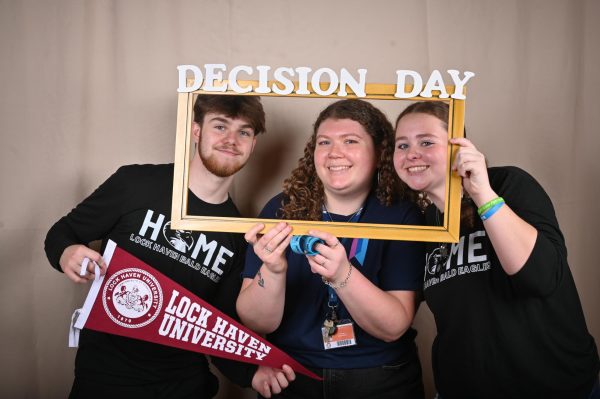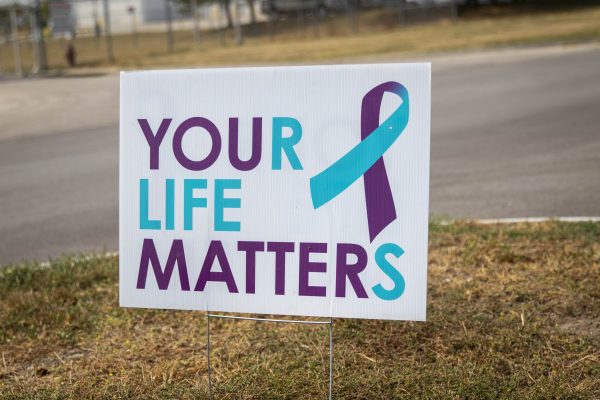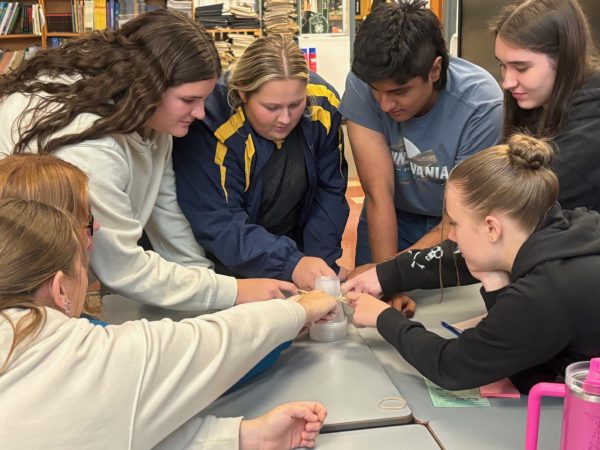Money Can Buy You Happiness– Sort of…..
Research suggests that $76,000 per year what it takes to be at your happiest.
Chloe Makdad
The expression has been around for a long time; money can’t buy you happiness. The reasoning of the old wise man who first said this was likely that if you don’t enjoy your job, the money you make from it will do nothing to make you happier.
While there does seem to be some logic behind this famous saying, it’s not entirely true. Money can buy you happiness– to a certain extent. The opposite end of the spectrum, meaning that money is equivalent to happiness, also has its flaws. Statistics do not agree with Oscar Wilde who said, “When I was young I thought that money was the most important thing in life; now that I am old, I know that it is.”
There is certainly a correlation between money and happiness, but happier you are does not reflect an infinite upward trend in the size of your wallet.
Before I begin a brief statistical filibuster on the matter, I will present a simpler argument, one laced with common opinions. Most of us can agree that being dirt poor would probably not make anyone extraordinarily jovial. Just imagine the stress to pay bills, to send children through college, and even just to get food on the table. It takes a very special person to make happiness out of hardship, and the majority of people are not going to be able to make the conversion.
On the contrary, excessive wealth is commonly linked with excessive greed, and, as the great German philosopher Erich Fromm said “Greed is a bottomless pit which exhausts the person in an endless effort to satisfy the need without ever reaching satisfaction.” That does not exactly sound like an ecstasy of joy to me.”
If you think at all like I do, math can predict, represent, and model just about anything– including happiness. To model the correlation between annual income and a person’s happiness, we can use what is called an inverted U-curve. In the simplest of terms, an inverted U-curve is an arc, similar to an upside down parabola, much like the ones that plagued you during your high school math class. The higher up on this arc someone is, the happier they are likely to be. The farther along on the arc they are, the higher their income is.
According to the popular economist and writer Malcolm Gladwell (made famous as the co-author of the popular book “Freakonomics”), the point on the arc that represents the happiest person is also the point on the arc that corresponds with an annual income of around $76,000.
$76,000 is the amount of money it takes to be at your happiest.
Of course, money is not the only way to ensure your happiness. You may make $50,000 dollars, or maybe you make $90,000, but you still feel like you can’t be any happier. The only difference between you and someone who makes $76,000 is the amount of times you go out to dinner in a week, or your car, or the size of your house. Or maybe you make $76,000 and you feel like your life is in shambles. It doesn’t really matter. You may be that statistical anomaly, but the numbers will regress back to the mean, back to that glorious inverted U-curve. The fact is clear; Money and happiness are forever linked, just not in the ways we have always been told.

Hi, my name is Haley Wagner. I am a sophomore this year. I'm a member of the Dance Fusion Competition Team and this year I am in 7 competition dances,...














devin • Nov 10, 2015 at 9:34 am
I agree
Steve Everhart • May 21, 2015 at 9:43 am
Makdad hit this one on the nose–there are two types of fools in the world: those who think money will make them happy, and those who think it won’t. Can someone at the Eagle Eye please clone Chloe Makdad and sell me the biogenetic rights? I want to create a super-race of brilliant writers and take over the world…and make lots of money, well, at least $76,000.